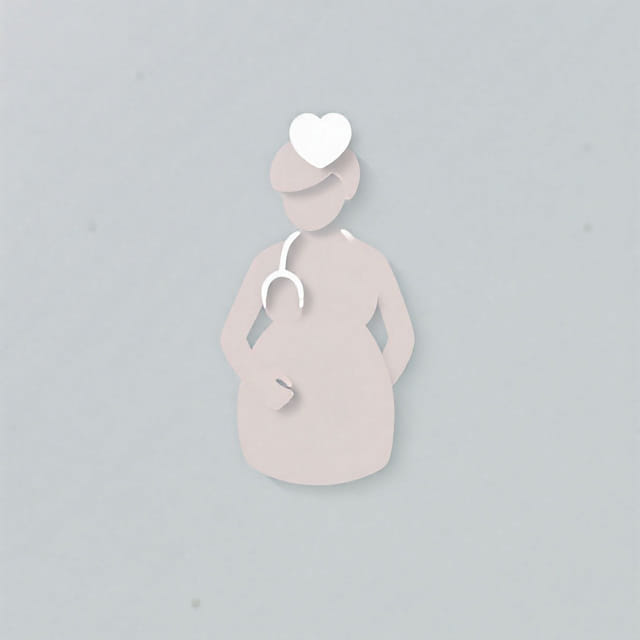When it comes to pregnancy, especially one that presents complications or potential risks, finding a qualified and experienced high-risk obstetrician near you becomes a top priority. These specialized doctors, often referred to as maternal-fetal medicine specialists, focus on managing high-risk pregnancies to ensure the health and safety of both mother and baby. Whether it’s due to a pre-existing medical condition, advanced maternal age, multiple pregnancies, or complications that arise during gestation, a high-risk obstetrician offers expertise and guidance through what can be a delicate journey.
Understanding the Role of a High-Risk Obstetrician
Who Needs a High-Risk OB?
Not all pregnancies require the care of a high-risk obstetrician. However, for certain women, this specialized care is essential. Here are some common reasons why a woman may be referred to one:
- Pre-existing medical conditions such as diabetes, hypertension, or heart disease
- History of complications in previous pregnancies
- Multiple gestation (twins or more)
- Age 35 or older at the time of delivery
- Autoimmune disorders or clotting abnormalities
- Problems detected during ultrasounds
Specialized Care and Monitoring
High-risk obstetricians, or perinatologists, are trained to handle complex pregnancies with specialized care. They often work alongside a general OB/GYN and provide detailed assessments using advanced imaging and diagnostic tools. Their services may include:
- Frequent ultrasounds and fetal monitoring
- Genetic testing and counseling
- Management of gestational diabetes or preeclampsia
- Customized birth planning
Finding a High-Risk Obstetrician Near You
Start With Your Current OB/GYN
If you’re already seeing an OB/GYN, the best place to start your search is by asking for a referral. Most general obstetricians will identify when a pregnancy becomes high-risk and will connect you to a maternal-fetal medicine (MFM) specialist within their network or local area.
Search Local Hospitals and Clinics
Many large hospitals have high-risk pregnancy units or partnerships with MFM specialists. Look into local women’s hospitals, academic medical centers, or facilities with neonatal intensive care units (NICUs), as they are more likely to provide high-risk obstetric services.
Use Online Medical Directories
Trusted health directories often allow you to search by specialty and location. When searching for a high-risk obstetrician near you, use keywords like maternal-fetal medicine specialist, perinatologist, or high-risk OB/GYN along with your city or zip code.
Check Credentials and Experience
Not all OB/GYNs are trained in high-risk obstetrics. Make sure the doctor you’re considering is board-certified in maternal-fetal medicine and has a history of managing complicated pregnancies. Patient reviews and hospital affiliations can also provide valuable insight into the quality of care offered.
What to Expect During High-Risk Pregnancy Care
Comprehensive Evaluation
Your first visit with a high-risk obstetrician will likely involve a thorough medical history review, assessment of current pregnancy complications, and additional testing. You may also receive a risk classification and a plan tailored specifically to your needs.
Frequent Monitoring
Expect more frequent check-ups and specialized imaging. Ultrasounds may be done every few weeks, or more often if needed. Non-stress tests, biophysical profiles, and fetal Dopplers may be part of routine care to ensure the baby is growing and developing well.
Multidisciplinary Team Involvement
High-risk pregnancies often require a team approach. You might work not only with a high-risk OB but also with endocrinologists, cardiologists, genetic counselors, or neonatologists depending on your medical needs.
Benefits of High-Risk Obstetric Care
Early Detection of Complications
One of the key advantages of working with a high-risk OB is early and accurate detection of potential complications. This allows for immediate intervention and significantly improves maternal and fetal outcomes.
Advanced Diagnostic Tools
High-risk obstetricians use the latest in imaging and genetic testing. This ensures a detailed understanding of the baby’s development and any anomalies that may arise during pregnancy.
Emotional and Psychological Support
Pregnancies that are high-risk can cause stress and anxiety. Having a knowledgeable, reassuring medical team helps expectant mothers feel more in control and supported throughout the journey.
Tips for Managing a High-Risk Pregnancy
Stay Informed
Understanding your condition and the care plan helps reduce fear and empowers you to make informed decisions. Don’t hesitate to ask questions during appointments with your specialist.
Follow Medical Advice Closely
Adhering to medical recommendations, attending all appointments, and taking prescribed medications as directed are essential for a positive pregnancy outcome.
Maintain a Healthy Lifestyle
Even in high-risk pregnancies, lifestyle choices matter. Eating a nutritious diet, getting enough rest, avoiding tobacco and alcohol, and staying physically active (if approved by your doctor) all contribute to a healthier pregnancy.
Build a Support Network
Don’t face this alone. Lean on your partner, family, friends, and support groups for emotional encouragement. Many communities also offer pregnancy support classes and mental health services for high-risk mothers.
Finding a qualified high-risk obstetrician near you is an essential step if you are dealing with a complicated pregnancy. These specialists bring knowledge, technology, and compassion to guide you through the challenges of high-risk pregnancy. Whether you are searching due to a known condition, a history of complications, or simply want to be proactive, connecting with a maternal-fetal medicine expert can offer peace of mind and significantly increase the likelihood of a healthy delivery. Be sure to consult your OB/GYN, research local healthcare facilities, and take advantage of online resources to locate the right care for your unique needs.
